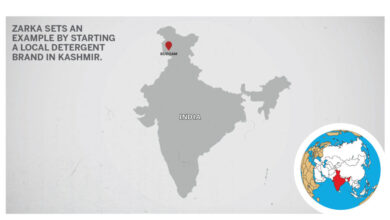

LUDHIANA, India — Due to the ongoing crisis in Afghanistan followed by the change in regime, the sewing machine industry in northern Indian state Punjab’s Ludhiana is expecting heavy losses.
The Taliban have halted India’s import and export duties in Afghanistan after taking over on Aug. 15.
As per Ajay Sahai, Director General of the Federation of Indian Export Organization, currently, the government of Afghanistan — ruled by the Taliban — has stopped the movement of cargo through the transit routes of Pakistan, thereby stopping imports from the country.
India has long-standing relations with Afghanistan, especially in trade. India has a significant investment in Afghanistan.
“We are one of the largest partners of Afghanistan, and our exports to Afghanistan are worth around $835 million for 2021,” said Sahai.
Jagjit Singh Sokhi, the President of the Sewing Machines Industries, Ludhiana, expressed his fears of impending losses due to the crisis in Afghanistan.
He said that every year, from Ludhiana, they sent 1.5 lakh (150,000) sewing machines, 5-6 lakhs (500,000 – 600,000) spare parts to Afghanistan.
Sokhi estimated that the business earned the sewers almost INR 150-200 crores ($20.40-$27.19 million) annually. But now, the industry was set to lose out due to regime change after the Taliban took over Afghanistan.
“The Afghanistan crisis is a huge blow to us, especially after Covid,” he said.
“Afghanistan takes a lot of our machines. They are supplied in bulk to Afghanistan. We expect a 40 percent downfall in our trade. This is done either through Pakistan, Dubai or directly to Afghanistan. The crisis in Afghanistan has further hit the industry.”
Sokhi said the sewing machine industry started in Ludhiana in 1942.
“Machines produced here are famous for their quality,” he said.
“Besides being sold domestically, they are exported to the Middle East, several Islamic countries, too, because embroidery is prevalent in these countries.”
Sokhi said there are 6000 units, both big and small, in Ludhiana, and the turnover is around INR 1200-1500 crores ($163.16 — $203.95 million).
“Our family has been in this industry for the past 50 years,” said Samandeep Singh, another industrialist.
“70 percent of our exports go to Afghanistan. But this power crisis has impacted our business. Exports have stopped for the past two months. Our existing orders, payments have stopped. Production has been reduced by 50 percent. Future does not look good.”
He said it is a labor-oriented job, and they will be unemployed.
“We will have to stop our work,” said Singh.
“Labor will be unemployed. Government must think about this.”
Afghanistan’s government collapsed on Aug. 15, with President Ashraf Ghani leaving the country. Taliban took control of Kabul and installed themselves in the presidential palace in the capital of the nation.
Several countries evacuated their diplomatic personnel from the government. Panic gripped the Afghan capital, and hundreds of people flocked to the Kabul airport in an attempt to leave Afghanistan.
Since its ouster in 2001, the Taliban has maintained its insurgency against the U.S.-led mission in Afghanistan and the Afghan government. As U.S. troops have withdrawn in 2021, the group has rapidly expanded its control and positioned itself for a return to power.
Taliban has withstood counterinsurgency operations from the world’s most powerful security alliance, the North Atlantic Treaty Organization, and three U.S. administrations in a war that has killed more than 6,000 U.S. troops and contractors and over 1,100 soldiers from the organization.
Around 47,000 civilians have died, and an estimated 73,000 Afghan troops and police officers have been killed since 2007. Tens of thousands of Taliban fighters are also believed to have died.
In August 2020, it was reported that India’s exports to Afghanistan almost touched $1 billion, and India’s import from Afghanistan was around $530 million. The growth in trade value has consistently improved over the last five years.
Despite the fast-evolving situation in Afghanistan, Sahai was optimistic about trade relations with Afghanistan.
“I am sure over some time Afghanistan will also realize that economic development is the only way to move forward, and they will continue with that kind of trade,” said Sahai.
“I think the new regime will like to have political legitimacy, and for that, India’s role will become important for them also.”
(With inputs from ANI)
Edited by Saptak Datta and Ritaban Misra
The post Afghanistan Crisis Hits Northern India’s Sewing Machine Industry appeared first on Zenger News.




